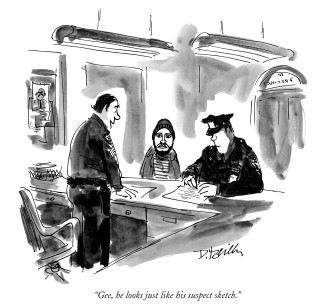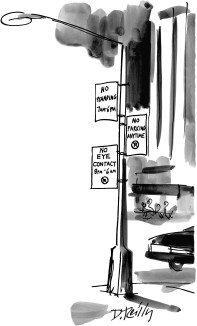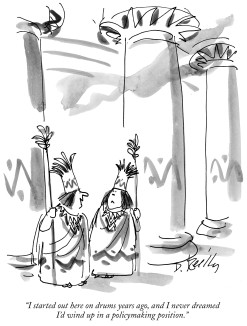The Cartooning Art of Donald Reilly
Donald Reilly, a 1963 graduate of the School of Art, was a regular contributor to The New Yorker and one of the most prolific cartoonists in the magazine's history. In 2010, his widow, Kathleen Collins Reilly donated more than 300 original drawings and sketches to The Cooper Union's Herb Lubalin Study Center of Design and Typography, noting that Cooper played a pivotal role in Mr. Reilly's life. Here we present three of his published cartoons along with the corresponding original drawings that demonstrate his style and process as a cartoonist. To learn more about Mr. Reilly, read our profile here.
Kathleen Reilly donated hundreds of her late husband's original drawings to the Lubalin Center at The Cooper Union.
The New Yorker published this cartoon on January 27, 1997, one of more than a thousand Reilly drew for the magazine.
The original drawing, housed in Cooper's Lubalin Center, shows that Reilly was off to a rare false start.
The original drawing, at 11 x 14 inches, is much larger than the printed cartoon.
This Reilly cartoon appeared in the New Yorker on December 15, 2007.
Initially Reilly set the lamppost amidst a busy streetscape.
Deciding the original scene was too distracting, Reilly added a layer of tissue to erase the left side of the drawing.
Reilly's work was published in The New Yorker through 2006. This cartoon appeared on January 8, 2001.
Famous for his sure and quick hand, Reilly could convey setting with few lines and deftly placed wash.







